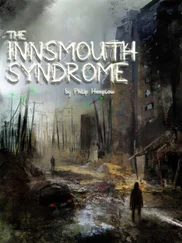“You talking about Miss Lucy Parlange’s place,” says the uncle. “And it couldn’t have happened to a nicer lady.”
“My auntee lives there too,” says Vergil. “She still lives in the same little house on False River. But she had a piece of land over by Parlange when they hit that big well. My auntee leased her place for a hundred thousand.”
“That old Parlange house been in the same family for two hundred and fifty years,” says the uncle. “Through thick and thin. They never gave up.”
“My auntee neither,” says Vergil.
They tell stories about the big oil strike at False River, who got rich, how money ruined some.
“Blood will tell ever’ time,” says the uncle. “You take the Parlanges. They were aristocrats when they didn’t have it, and when they got it, it made no difference.”
“My auntee too,” says Vergil. “She raised my daddy when his mamma got consumption and had to go to Greenwell Spring.”
“How far is it?” I ask him.
“What?” asks the uncle.
“Belle Ame?”
“Around the bend. Watch out for the old oil fields and the tank farm.”
We’re back in the current, booming along past the great Tunica Swamp.
There is a double sun. The second sun reflects from a monolith mirror. It is the great glass pyramid of Fedville downriver. Beyond, in its shadow, the Grand Mer cooling tower looms as dark and spectral as the uncle’s ghost ship.
We smell the old oil field before we see it. The loess hills have dropped away and the levee begins. Beyond are the tops of the tanks, which over the straight line of the levee gleam like steel marbles in a box. The scaffolding of the refinery, which used to hum and blaze away like the Ruhr Valley, is now gaunt and dark.
We ease into dead water behind a towhead of cottonwoods and there it is, the landing as fancy as ever it was in the great days of steamboats, three-tiered with heavy lashed piling, tire-bumpered, a heavy winched-up gangplank suspended in midair, ready for lowering onto the Robert E. Lee. A cotton bale stands at each end of the upper dock. The river laps over the lowest level and we slide right in.
“Upend it over that pile, out of sight, keep it quiet and we’ll have a look,” I tell Vergil.
There’s a gazebo atop the levee with a booth where I reckon tickets are sold to tourists on the Plantation Parade. We sit on a bench inside the gazebo, in shadow and behind the booth.
Except for a man riding a gang mower, the grounds of Belle Ame are empty. The quarters, garçonnières, and carriage houses are dark. But there are movements at a window. The oaks look as dense and lobuled as green cabbages. Their shadows are short. Except for two lit carriage lanterns, the great house seems deserted. The soccer fields and tennis courts are empty. The flag hangs limply from its pole. A door slams. A black woman, long-skirted, kerchiefed, comes out on the upper gallery with a bucket and a mop. We sit for a while.
The uncle breaks the breech of his Purdy, sniffs it, closes it with a click.
Presently the uncle says to Vergil, “What are we waiting for?”
They’ve made up.
“What we waiting for, Doc?” Vergil asks me.
“Just to have a look. What time is it?” I feel fixed-eyed.
“Ten-forty.”
“Good.” I am silent.
Vergil and the uncle look at each other.
“I want to see classes change. It should be at eleven.”
At eleven the plantation bell rings, a solid peal of heavy metal. Classes change. Most of the children change from one room in the quarters to another. Some come and go from the rear of the big house. Nobody enters or leaves the garçonnière.
As we gaze, the dark green of the oaks seems to grow even darker, even though the sun is shining brightly. Then the dark whitens, just as if you had closed your eyes, the retinal image reversing, light going dark, dark light.
Vergil is watching me without expression, thumbnail touching his teeth.
“Well,” says the uncle, opening and closing the shotgun.
“Let’s go over there.” I nod toward the garçonnière. “I think you better leave the shotgun here, Uncle Hugh.”
“You think I’m going to leave a five-thousand-dollar Purdy out here for any white trash that comes along?” He snaps the breech a last time and hikes out.
We look at him. With his oversize hunting coat flapping around his knees, duck cap hugging his narrow skull, flaps down, seeming to sidle as he walks, one foot slinging, the barrel of the shotgun in the crook of his arm, he looks as loony as Ichabod Crane.
4. WE STOP IN THE SHADOW of an oak near the garçonnière. There is a movement in the window. It is a woman, standing, arms folded, looking out, but not at us. She seems to be smiling, but perhaps it is a shadow. No, it is Mrs. Cheney. I recognize the heavy dark eyebrows, rimless glasses, oval face still young-looking despite the heavy iron-colored hair pulled down tight.
Presently she turns away.
Several minutes pass. The uncle is as still as if we were in a duck blind. Vergil is watching me.
“Let’s go over here.” I move closer, into the shadow of the porch. Now we can see what Mrs. Cheney is doing. She is standing, arms still folded under her breasts, watching a boy playing cards on the floor. She is still smiling. She is often described as having a “sweet face” and she does. She has always been a sitter hereabouts, babysitter, sitter for old people. She is one of those women who have no other qualification than pleasantness and reliability. She used to sit with Meg and Tommy. Her best feature is her skin, which is like satin, smooth and dusky as a gypsy’s. She has gained some weight. Her forearms under her breasts are still firm-fleshed, but there is a groove along the bone separating the swell of pale underflesh pressed against her body from the dark outer arm.
“Well?” says Vergil, still watching me. He is worried about me, my silence. Do I know what I’m doing?
“Let’s go say hello to Mrs. Cheney. Uncle, you’re going to have to leave the shotgun by the door.”
“There is no way—” he begins.
“Put it behind that sweet olive. You don’t want to frighten Mrs. Cheney.”
We knock and go in. Mrs. Cheney looks up, smiling. She seems no more than mildly surprised.
“Dr. More!”
“Hello, Mrs. Cheney. You know my uncle, Hugh Bob Lipscomb, and Vergil Bon, Claude’s father.”
“I surely do, and that’s a fine boy. Hugh, that bluebird never came back. Hugh made me a bluebird box,” she explains to me.
“That was a while ago,” says the uncle, eyes somewhat rolled back. He’s embarrassed and feels obliged to explain. “She had a bluebird nesting in her paper tube. I gave her the box but told her it would be better not to mess with the bird that season. But something ran it off.”
“Is that right?”
“I first knew Mrs. Cheney when she used to sit with Lucy,” the uncle explains to Vergil.
“They were all lovely people,” says Mrs. Cheney. “All of y’all.” Mrs. Cheney is nodding and smiling, eyeglasses flashing, as if nothing could be more natural than that the three of us should have appeared at this very moment.
While we talk, we are gazing down at the child. He is a boy, seven or eight. He looks familiar. He is picking up playing cards which are scattered face down on the floor. He is a very serious little boy, very thin, dressed in khaki pants and matching shirt like a school uniform. His narrow little butt waggles as he crawls around picking up cards. When he picks up four cards, hardly looking at them, he stacks them awkwardly against his chest and makes a separate pile.
“Ricky, you speak to these nice gentlemen.”
“Aren’t you Ricky Comeaux?” I ask him. Ricky doesn’t speak, but he sits around to see us, large head balanced on the delicate stem of his neck. Finally he nods.
Читать дальше












